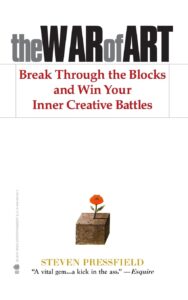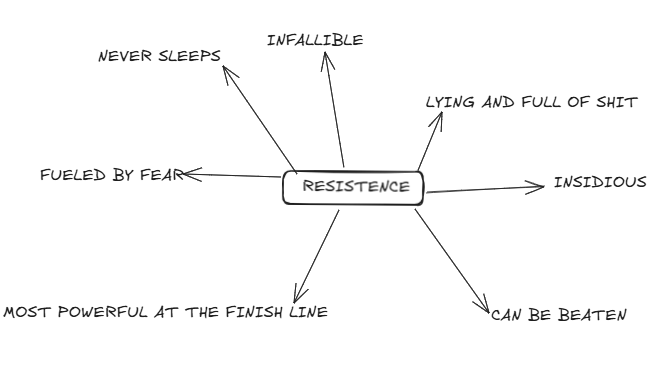I am not sure how I came across this book, but I recently heard that Ryan Holiday likes to reread it every time he starts a new project.
Without resistance, there is no growth. Am I sure about that?

There’s a secret that real writers know that wannabe writers don’t, and the secret is this: It’s not the writing part that’s hard. What’s hard is sitting down to write. What keeps us from sitting down is Resistance.
When we sit down each day and do our work, power concentrates around us.
Note: consistency is king of success, motivation is overrated
If you believe in God, you must declare Resistance evil, for it prevents us from achieving the life God intended when He endowed each of us with our own unique genius. Genius is a Latin word; the Romans used it to denote an inner spirit, holy and inviolable, which watches over us, guiding us to our calling.
Most of us have two lives. The life we live, and the unlived life within us. Between the two stands Resistance.
Note: What a powerful reframing.

Rule of thumb: The more important a call or action is to our soul’s evolution, the more Resistance we will feel towards pursuing it.
Note: I’m not quite sure about that. Where is Resistance when you feel excitement in action?
Maybe the Resistance lives in taking the first step?
Resistance has no strength of its own. Every ounce of juice it possesses comes from us. We feed it with power by our fear of it. Master that fear and we conquer Resistance.
The danger is greater when the finish line is in sight. At this point, Resistance knows we’re about to beat it. It hits the panic button. It marshals one last assault and slams us with everything it’s got.
Note: how many projects have I left unfinished? Was it due to resistance, or a lack of interests, purposes, or expected rewards?
Who am I? Why am I here? They’re not easy questions because the human being isn’t wired to function as an individual….What we don’t know is how to be alone. We don’t know how to be free individuals.
The more scared we are of a work or calling, the more sure we can be that we have to do it.
Note: If you must choose between the easy and the hard way, choose the hard one.
Hard choices, easy life, easy choices, hard life.
So if you’re paralysed with fear, it’s a good sign. It shows you what you have to do.
Note: So the fear, not resistance, makes us grow.
Resistance is directly proportional to love. If you’re feeling massive Resistance, the good news is, it means there’s tremendous love there too. If you didn’t love the project that is terrifying you, you wouldn’t feel anything. The opposite of love isn’t hate; it’s indifference.
The amateur is a weekend warrior. The professional is there seven days a week. The word amateur comes from the Latin root meaning “to love.” The conventional interpretation is that the amateur pursues his calling out of love, while the pro does it for money. Not the way I see it. In my view, the amateur does not love the game enough. If he did, he would not pursue it as a sideline, distinct from his “real” vocation. The professional loves it so much he dedicates his life to it. He commits full-time. That’s what I mean when I say turning pro. Resistance hates it when we turn pro.
I was crushed. Here I was, forty-two years old, divorced, childless, having given up all normal human pursuits to chase the dream of being a writer; now I’ve finally got my name on a big-time Hollywood production starring Linda Hamilton, and what happens? I’m a loser, a phony; my life is worthless, and so am I. My friend Tony Keppelman snapped me out of it by asking if I was gonna quit. Hell, no! “Then be happy. You’re where you wanted to be, aren’t you? So you’re taking a few blows. That’s the price for being in the arena and not on the sidelines. Stop complaining and be grateful.” That was when I realized I had become a pro. I had not yet had a success. But I had had a real failure.
Note: Failure makes progress.
Remember, the Muse favors working stiffs. She hates prima donnas. To the gods the supreme sin is not rape or murder, but pride. To think of yourself as a mercenary, a gun for hire, implants the proper humility. It purges pride and preciousness.
Resistance loves pride and preciousness. Resistance says, “Show me a writer who’s too good to take job X or Assignment Y and I’ll show you a guy I can crack like a walnut.”
Technically, the professional takes money. Technically, the pro plays for pay. But in the end, he does it for love.
The amateur believes he must first overcome his fear; then he can do his work. The professional knows that fear can never be overcome. He knows there is no such thing as a fearless warrior or a dread-free artist.
A Professional does not take failure (or success) personally.
Note: Don’t take things personally, changed how I care about people’s opinions.
Success is often a matter of luck, connections, and doing mundane tasks for a long time.
Evolution has programmed us to feel rejection in our guts. This is how the tribe enforced obedience, by wielding the threat of expulsion. Fear of rejection isn’t just psychological; it’s biological. It’s in our cells. Resistance knows this and uses it against us. It uses fear of rejection to paralyze us and prevent us, if not from doing our work, then from exposing it to public evaluation.
Note: Consider the worst-case scenario. Reframe feedback.
The professional cannot let himself take humiliation personally. Humiliation, like rejection and criticism, is the external reflection of internal Resistance.
A professional endures adversity.
Note: accept, to feel like an idiot most of the time.
Remember, you don’t want to be the wisest person in a room; you want to be the best listener.
An amateur lets the negative opinion of others unman him. He takes external criticism to heart, allowing it to trump his own belief in himself and his work. Resistance loves this.
Note: Do you
The professional cannot allow the actions of others to define his reality.
Tomorrow morning the critic will be gone, but the writer will still be there facing the blank page. Nothing matters but that he keep working.
Note: No one surpassing your level hates your work.
There’s no mystery to turning pro. It’s a decision brought about by an act of will. We make up our minds to view ourselves as pros and we do it. Simple as that.
Note: Thoughts –> actions –> new you
By Blake’s model, as I understand it, it’s as though the Fifth Symphony existed already in that higher sphere, before Beethoven sat down and played dah-dah-dah-DUM. The catch was this: The work existed only as potential — without a body, so to speak. It wasn’t music yet. You couldn’t play it. You couldn’t hear it. It needed someone. It needed a corporeal being, a human, an artist (or more precisely a genius, in the Latin sense of “soul” or “animating spirit”) to bring it into being on this material plane. So the Muse whispered in Beethoven’s ear. Maybe she hummed a few bars into a million other ears. But no one else heard her. Only Beethoven got it. He brought it forth. He made the Fifth Symphony a “creation of time,” which “eternity” could be “in love with.” So that eternity, whether we conceive of it as God, pure consciousness, infinite intelligence, omniscient spirit, or if we choose to think of it as beings, gods, spirits, avatars — when “it” or “they” hear somehow the sounds of earthly music, it brings them joy. In other words, Blake agrees with the Greeks. The gods do exist. They do penetrate our earthly sphere. Which brings us back to the Muse. The Muse, remember, is the daughter of Zeus, Father of the Gods, and Memory, Mnemosyne. That’s a pretty impressive pedigree. I’ll accept those credentials.
Note: a good idea comes at the most unexpected moment. Usually, when not engaged with work.
Maybe ideas are floating around in the sphere, occasionally dropping into the mind of destined person.
Goethe’s couplets: “Whatever you can do, or dream you can, begin it. Boldness has genius, magic, and power in it. Begin it now.”
Note: Fake it till you make it.
The moment a person learns he’s got terminal cancer, a profound shift takes place in his psyche. At one stroke in the doctor’s office he becomes aware of what really matters to him. Things that sixty seconds earlier had seemed all- important suddenly appear meaningless, while people and concerns that he had till then dismissed at once take on supreme importance.
Note: It’s why I think about death every day.
We come into this world with a specific, personal destiny. We have a job to do, a calling to enact, a self to become. We are who we are from the cradle, and we’re stuck with it. Our job in this lifetime is not to shape ourselves into some ideal we imagine we ought to be, but to find out who we already are and become it. If we were born to paint, it’s our job to become a painter. If we were born to raise and nurture children, it’s our job to become a mother. If we were born to overthrow the order of ignorance and injustice of the world, it’s our job to realize it and get down to business.
Note: The most difficult question to answer. What is my task?
How can we tell if our orientation is territorial or hierarchical? One way is to ask ourselves, If I were feeling really anxious, what would I do? If we would pick up the phone and call six friends, one after the other, with the aim of hearing their voices and reassuring ourselves that they still love us, we’re operating hierarchically. We’re seeking the good opinion of others. What would Arnold Schwarzenegger do on a freaky day? He wouldn’t phone his buddies; he’d head for the gym. He wouldn’t care if the place was empty, if he didn’t say a word to a soul. He knows that working out, all by itself, is enough to bring him back to his center. His orientation is territorial. Here’s another test. Of any activity you do, ask yourself: If I were the last person on earth, would I still do it? If you’re all alone on the planet, a hierarchical orientation makes no sense. There’s no one to impress. So, if you’d still pursue that activity, congratulations. You’re doing it territorially.
The artist is the servant of that intention, those angels, that Muse. The enemy of the artist is the small-time Ego, which begets Resistance, which is the dragon that guards the gold. That’s why an artist must be a warrior and, like all warriors, artists over time acquire modesty and humility. They may, some of them, conduct themselves flamboyantly in public. But alone with the work they are chaste and humble. They know they are not the source of the creations they bring into being. They only facilitate. They carry. They are the willing and skilled instruments of the gods and goddesses they serve.
